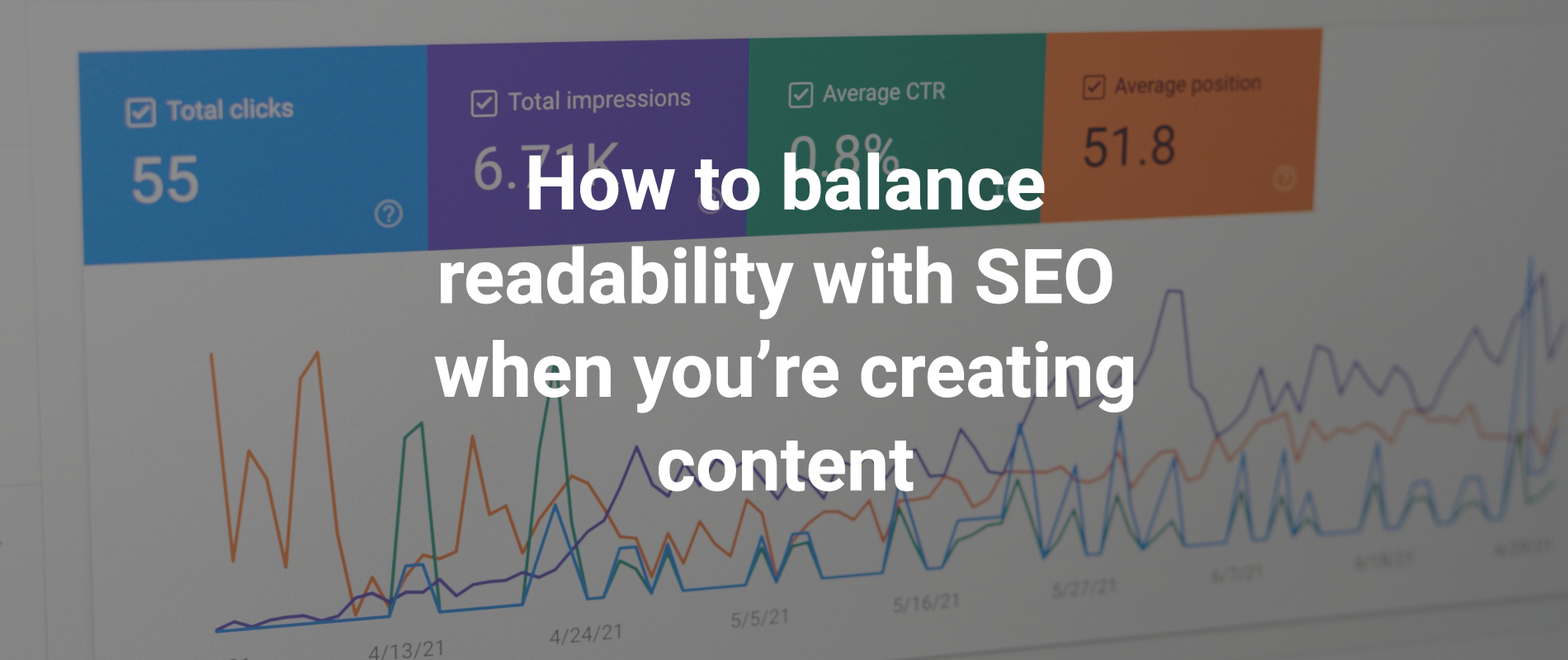When you’re creating online content, striking the right balance between SEO and readability is crucial.
A well-optimized post might attract plenty of visitors, but if the content’s not readable and engaging, readers will bounce away, never to return.
On the other hand, even the most well-written piece won’t serve its purpose if no one can find it.
This post will guide you through the subtle art of pairing SEO and readability to create content that both search engines and your audience will appreciate.
Understanding SEO and readability
SEO focuses on ranking higher on search engine results pages (SERPs). Optimization involves strategies like incorporating relevant keywords, using meta tags, optimizing images and adding inbound and outbound links to your content.
Readability refers to how easily the average reader can understand a piece of content. Language clarity, sentence structure and content formatting all contribute to better readability. The goal of improving readability is to engage and retain your readers by making your content enjoyable and easy to digest.
While SEO drives people to your site, readability keeps them there. It’s a delicate balancing act between the two — and when you do it right, you can significantly impact your content marketing success.
The critical connection between SEO and readability
At first glance, SEO and readability seem like separate, even conflicting, aspects of content creation. But dive a bit deeper and you’ll find they’re closely intertwined.
Search technology companies including Google and Microsoft have become increasingly sophisticated in their mission to deliver the most relevant results. These companies are also working tirelessly to remain the go-to source for quick answers in an environment where generative AI is now a player.
These days, you can’t expect to rise to the top of SERPs just by stuffing keywords into your content. Search engines reward content that offers real value to readers — content that is easily digestible, relevant and engaging. In other words, search engines value readability.
On the flip side, many elements that improve readability also enhance SEO. Using subheadings makes your content easier to scan and also provides more opportunities to include important keywords. Writing shorter sentences and paragraphs makes your content easier to digest and helps search engines understand and index it.
SEO and readability are not competitors in a zero-sum game — they are partners in a delicate dance. When one improves, so does the other, adding up to a powerful combination.
How to maintain SEO without sacrificing the reader experience
With the right strategies, maintaining a high SEO score while ensuring your content is readable is absolutely possible. Here’s how:
Use keywords judiciously
Keywords are the lifeblood of SEO, but using too many can make your content feel forced and unnatural. To avoid this trap, use keywords naturally in your content. Think of them as seasonings; a little goes a long way. Use keywords in your title, subtitles, meta descriptions and body copy — but resist the urge to pack in as many as possible when writing.
Write for your audience
Always remember that you’re writing for humans first, and search engines second. Keep your audience’s language, interests and pain points in mind when creating content. When you prioritize reader value, you’re more likely to improve dwell time — a factor search engines consider when ranking pages.
Create skimmable content
Break up your content into small, easily-digestible chunks. Use headings, subheadings, bullet points and images to make your content skimmable and incorporate more keywords.
Link strategically
Throughout your content, incorporate high-quality internal and external links that provide useful information for your readers. Linking boosts your credibility, offers additional value for your audience and helps with your rankings.
Create easily-digestible content that wins in SERPs
Content is still king in our online world. And to create content that converts, you need to think about what you say and how you say it. Adding keywords to your copy is not enough — you must also consider how readers are experiencing and understanding each piece.
When you balance SEO with readability, you get the opportunity to connect with your audience and stand out in the crowded digital landscape, which is a winning formula for success with content marketing.
To find out how Horizon Peak Consulting can help you create compelling content at scale, connect with Jessica Mehring on LinkedIn.
